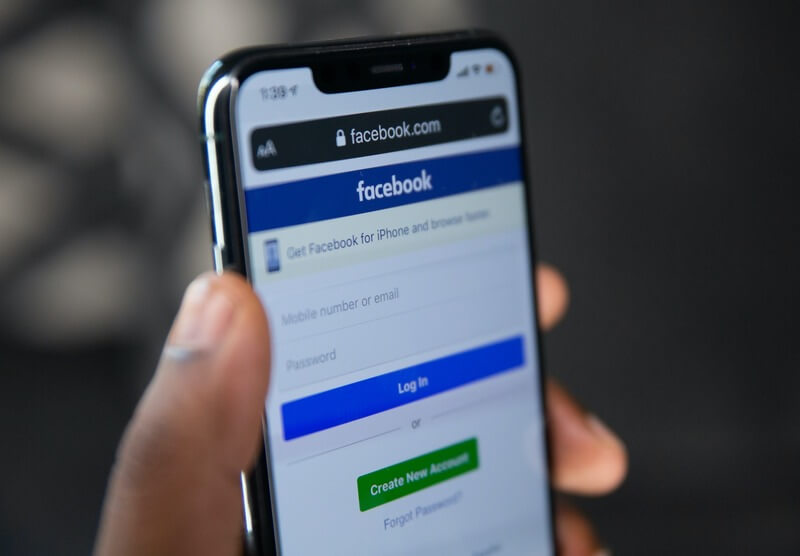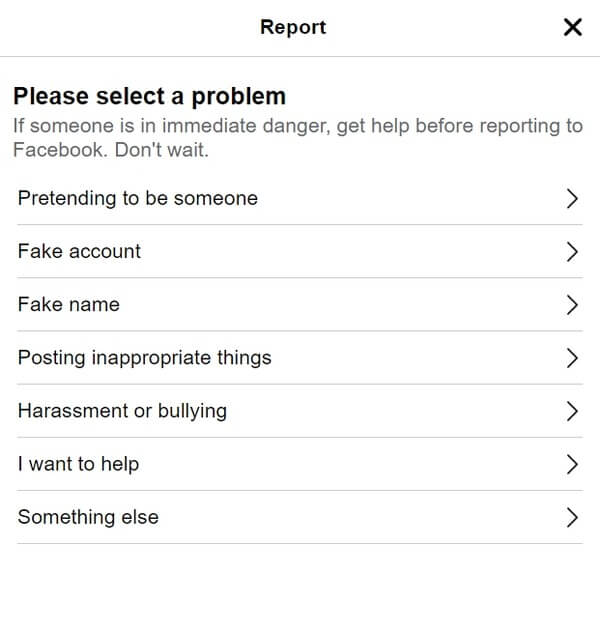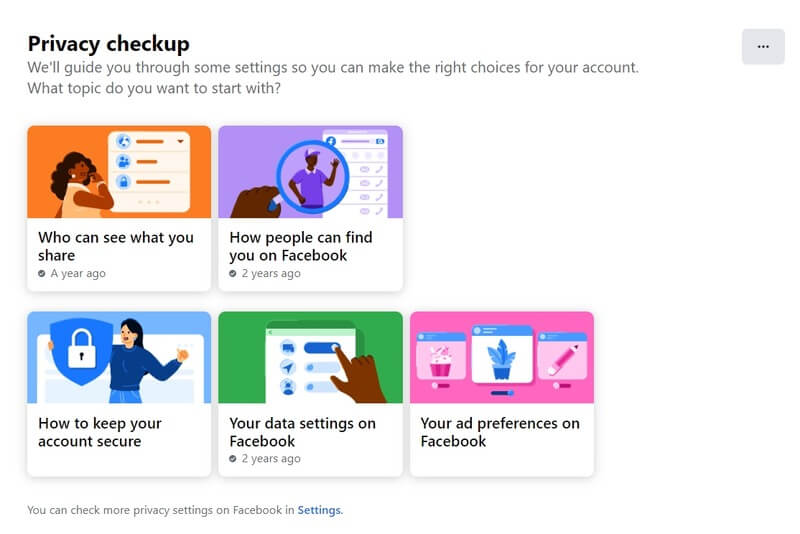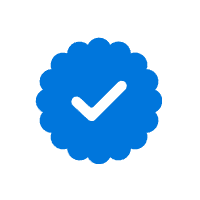Someone Created A Fake Facebook Account of Me! What To Do?
It seems unthinkable—almost like seeing your double walking down the street.
What are we talking about? An increasingly common form of fraud creates big headaches and large financial losses for people across the country.
Scammers are creating fake Facebook profiles to pretend to be other people. Even worse, they’re using profiles with your name and picture attached to scam other people…including your friends and family.
If there’s someone impersonating you on Facebook, you need to be aware of it. And once you’re aware—you need to take immediate action.
The following sections cover everything you should know and do. Don’t skip any detail.

Photo by Solen Feyissa
Is There a Profile Pretending to Be Me?
The odds that there’s a fake Facebook profile pretending to be you are not as small as you think.
Facebook removed 1.3 billion fake accounts…and that was in just one quarter of 2022. There are TONS of fake profiles on the platform, many of which masquerade as real people.
Many of them never get removed, either—Facebook estimates that 5% of all profiles are fake. That translates to about 90 million profiles.
So does one of them have your face as the profile pic?
One way to find out is to search on Google for Facebook for your full name and review the profiles that come up.
You can catch many impostors this way, but scammers might also attach your picture to a profile with a different but similar name to your own, like using Jim instead of James. Or, they may create a dummy profile and block your own, which will keep you from seeing the dummy in search results. Just be aware that your own searches may NOT turn up every impostor profile you need to be aware of.
Regardless, searching is a simple and smart way to keep yourself safe. It’s not, however, the way most people find out that their identity has been stolen by someone on Facebook.
No, the most common way it happens is this: a friend or family member speaks up about it probably after that fake profile solicited them for money or something sensitive and raised a red flag.
Knowing the people closest to you would alert you about the fake profile is comforting. But it’s highly alarming, too.
Do you know why?
Because your friends and family are targets…and they are already under attack. It may just be a matter of time before someone claiming to be you turn someone you care about into a victim of fraud.
We will shortly cover how to protect yourself and others. First, though, let’s dive deeper into one of these scams.
A Real-Life Facebook Scam
Let’s be very clear: The risk of someone impersonating you on Facebook isn’t hypothetical, nor is this kind of fraud rare.
Consider a real-life example of making the rounds in 2023.

You receive a message from someone on your friend list with the provocative subject line “Look Who Died!” and a link for you to click. Except when you click the link, you’re directed to a page asking you to re-enter your Facebook login credentials.
The page looks real. And, of course, you’re still eager to hear who died. So you enter your username and password and hit enter.
BIG mistake.
The information goes directly to a scammer who immediately uses it to log in to your account, change your password, and lock you out of your Facebook profile. And while you’re pleading with Facebook to let you back in, the scammers are sending the same message—Look who died!—to all your contacts. And if any of them click the link…the cycle starts again.
Now, this isn’t quite the same thing as someone creating a dummy profile pretending to be you. In this example, they steal your actual profile. But it highlights how Facebook scams are a clear and present danger, and your profile is in the line of fire.
In the next section, we highlight why these scams are not just real, common, and annoying—but FAR more damaging than you could have ever imagined.
How Does This Happen?

Photo by Austin Distel
You won’t believe how easy it is.
In fact, impersonating someone else on Facebook is one of the simplest scams you could think up—especially for its effectiveness. Scammers don’t need much time, energy, or creativity to snare a victim. They don’t need much of anything at all.
Really, just two things: your name and profile picture.
Scammers can find your name in countless places, do a simple search to track down your Facebook profile, and then download your profile picture.
Then they make a new profile with your name and picture. That easily, any message or friend request that comes from this account looks like it’s coming from you.
Scammers get bonus points if they discover or steal other information about you, much of which they can find in public sources, and use it to fill out the fake profile. Now, only your closest acquaintances may be able to tell your real profile from your fake profile.
There’s now a convincing double of you online – and it only took scammers a couple of minutes to create.
It’s a frightening thought. What could happen is even more alarming, though, which we talk about in the next section.
What Should I Be Worried About?
A Facebook profile pretending to be you might not sound like much to be alarmed about. Even someone taking over your actual profile seems like it would be annoying more than anything else.
Annoying is certainly right…but things can quickly get worse. Much worse.
Someone using your name and image on Facebook might ask your contacts to wire money through Western Union. Maybe they say it’s an emergency and target your older relatives or pretend you have a medical condition and need to raise funds.
Your contacts could lose hundreds or thousands of dollars. And the chance of recovering these funds is slim to none.
If you think that sounds impossible, that no one could ever fall for such a scam, consider what happened to a woman in Arkansas.
She got a message from a trusted friend who was excited to tell her about a financial grant she could qualify for. But first – she needed to pay a little.
The woman paid $20,000 before eventually discovering that hackers had taken over her friend’s account. This scenario isn’t unique, unfortunately. And things can get even worse.
How?
Because your Facebook profile is also a gold mine of personal information, scammers can scrape your profile for details to access your other accounts—banking, investments, email, and more—and pretend to be you across your entire online life.
They can open credit cards in your name, make purchases you’re responsible for, and commit illegal acts that trace back to you. Or, they can sell your data to someone else (or multiple others) who abuse it however they want.
It needs to be said bluntly: When it comes to scams involving Facebook profiles…there’s no telling how bad things will get… no limit to how many people will be affected….and no certainty when (or even if) things will end.
Calling it an ordeal puts it too mildly.
How To Report A Fake Facebook Account?
If you discover a Facebook profile posing as you, alert Facebook immediately.
Ultimately, Facebook is the only one that can take the profile down—and you are not safe until it’s down.
Go to the page impersonating you. Below the profile picture is an ellipsis (three dots). Click the dots and select “Find Support or Report Profile,” then follow the instructions to flag the profile for impersonation and stolen identity.

Facebook will review your report and remove the profile, but it remains to be seen. Fake profiles disappear in a matter of days. Persistently contacting Facebook about the issue may help to move the needle. A single report may not result in an immediate resolution.
Getting the profile taken down means the scammer is no longer using your identity to trick other people. That’s good news. But there’s bad news, too: the fraud might not be over – and the worst may still be coming.
Remember what we mentioned earlier? Scammers sell the data from your Facebook profile to other scammers, probably on the dark web, so any number of strangers have your identifying information, which they can exploit however they want, whenever they want, over and over again.
Getting a fake profile removed is just the start. It can be an ongoing, years-long process before you ever feel safe again. And, in the meantime, the anxiety over who has your data and what they’re doing…well, it can be overwhelming.
It sounds hopeless. And, frankly, it can feel that way, too. Don’t despair. There’s a way to restore your peace of mind and protect your identity at the same time.
How?
With identity theft protection – when your identity is under attack from any number of scammers, identity theft protection keeps you alert, informed, and on guard. A professional team (like Aura’s) monitors round-the-clock for unusual or unauthorized activity on your accounts and alerts you if your personal information has been compromised in any way.
You don’t know what a scammer might be doing with the information they stole from your Facebook page – unless you have identity theft protection to tell you. It’s not only a vital component to keep yourself safe but also a way to make this whole situation seem less stressful and easier to handle.
Finding a fake Facebook profile claiming to be yours can be traumatic and cause lots of turbulence in your life. Identity theft protection goes a long way to make things better.
But don’t forget—you’re not the only victim involved here. The scammer potentially, or probably targeted your contacts as well. How do you keep them safe? We cover that in the next section.
How Can I Keep My Contacts Safe?
Your contacts may be at even greater risk than you are. Scammers stole your image, information, and possibly your identity, too—but they’re using it to target the people you know and manipulate them without their awareness.
First, you should send a message to everyone on your contacts list.
Inform them about the fake profile and warn them about fake and malicious messages that may have your name attached. Include a link to the fake profile and ask your contacts to report it as a fake profile impersonating someone else. The more reports that Facebook gets, the faster it moves to remove fake profiles (typically).
Finally, educate your contacts on the danger of Facebook scams, both to themselves and others.
Now, you may be thinking—who wants a lecture on Fraud protection? Well, the answer is anyone who uses Facebook.
Impersonation scams like the ones we’ve been talking about are just one of MANY forms that Facebook scams take.
These scams successfully steal billions of dollars yearly—often from people who think they’re too smart, savvy, or secure to become a victim. And the scammers responsible very rarely get revealed, caught, or subject to punishment.
Facebook scams aren’t going anywhere, so everyone on the platform needs to know how to spot, stop, and steer clear of scams—for their protection and the protection of all their contacts.
Individuals are their own best protection, especially when they’re well informed. But, unfortunately, no one can sniff out all scams all of the time (we all have blind spots). Therefore, it’s a smart and safe decision for anyone to have identity theft protection. Consider letting your contacts know.
If you or your contacts only read one section in this whole article, it should be the next one, where we cover how to keep someone from impersonating you on Facebook in the first place (or again, as the case may be).
Keep Your Identity Safe On Facebook

Say what you will about scammers. It’s hard to be 100 percent protected against Facebook scams, whether they impersonate your identity. However, with a few simple steps, you increase your protection significantly. We recommend that every Facebook user follow the steps below.
Conclusion
If you haven’t done it already, take a few minutes to check how many Facebook profiles claim to be you. The number might surprise you. While you’re at it, check for duplicate profiles on any other social media sites you frequent because this problem isn’t exclusive to Facebook.
If you want to lower your risk of Facebook scams by as much as possible and also want to make yourself resilient to this and many other kinds of scams, you have a secret weapon: identity theft protection.
Being on Facebook, or anywhere online for that matter, puts you at risk. And once your identity has been stolen, things get chaotic quickly. You aren’t going to quit Facebook or cancel your internet connection, so put a barrier between yourself and the scammers.
Sign up for identity theft protection to take the stress out of social media.
Related Articles To Protect Your Social Media Accounts:


